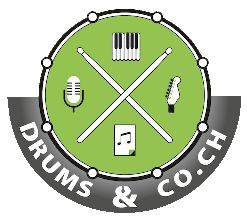The School Charter
1. Teaching quality. The school’s teachers are music professionals ; they have been trained by renowned teachers. They are skilled for both their instruments practice and the art of teaching.
The school’s teachers commit themselves to provide quality teaching, with the seriousness and rigour it deserves.
They set goals with each student, taking his/her progression into consideration, while adapting to his/her living environement (school or professional life, hobbies, etc.).
2. Welcoming and support for the students. The school welcomes students of all levels and all age, without prerequisite, without discrimination.
The teachers commit themselves to welcome each student at his/her current level, to support him/her with the learning of the instrument he/she has chosen, doing so according to the rule book.
The school doesn’t require students to have a knowledge of solfege to be able to start an instrument.
Beginners can discover solfege while learning theri instrument.
All students can benefit from an upgrade in case of weaknesses in this area.
Moreover, the students who are passing exams (public school, conservatory etc.) can get specific help.
Our school supports students who are following a music education program within their schooling (music lessons, « option musique », « option spécifique musique », conservatory, bachelor and master studies at HEM Geneva).
3. Rhythm and music. We see that the study of rhythm is often the poor cousin of the instrument learning.
The school’s specificity lies in the teaching of phonetic rhythm solfege for it allows the student to grasp rhythm as a whole and in more specific way related to the instrument itself.
This method applies to all instrumentalists.
4. Music workshops. Our school offers music workshops to all students, at whatever level or age.
These workshops include different instruments, such as piano, guitar, drums, voice.
They are a meeting ground, where each student listens, shares and puts into practice all that he has learned during his/her instrument or voice lesson.
Our wish is to encourage students to play with others, in a band or ensemble.
We think that it is never too soon to do it !
These workshops are open to our students and other instrumentalists.
5. Children. Young children are welcomed in our school, starting from 6 years old and according to the chosen instrument (understanding of the instructions, concentration capacity and sufficient motricity).
A trial lesson is available for evaluation.
6. Seniors and intergenerational exchange. The school is concerned about supporting seniors in a convivial atmosphere and free of pressure.
It favours intergenerational exchange, particularly in group lessons and workshops for it believes in mutual input between the young and the less young, such as spontaneity, energy, experience, etc.

